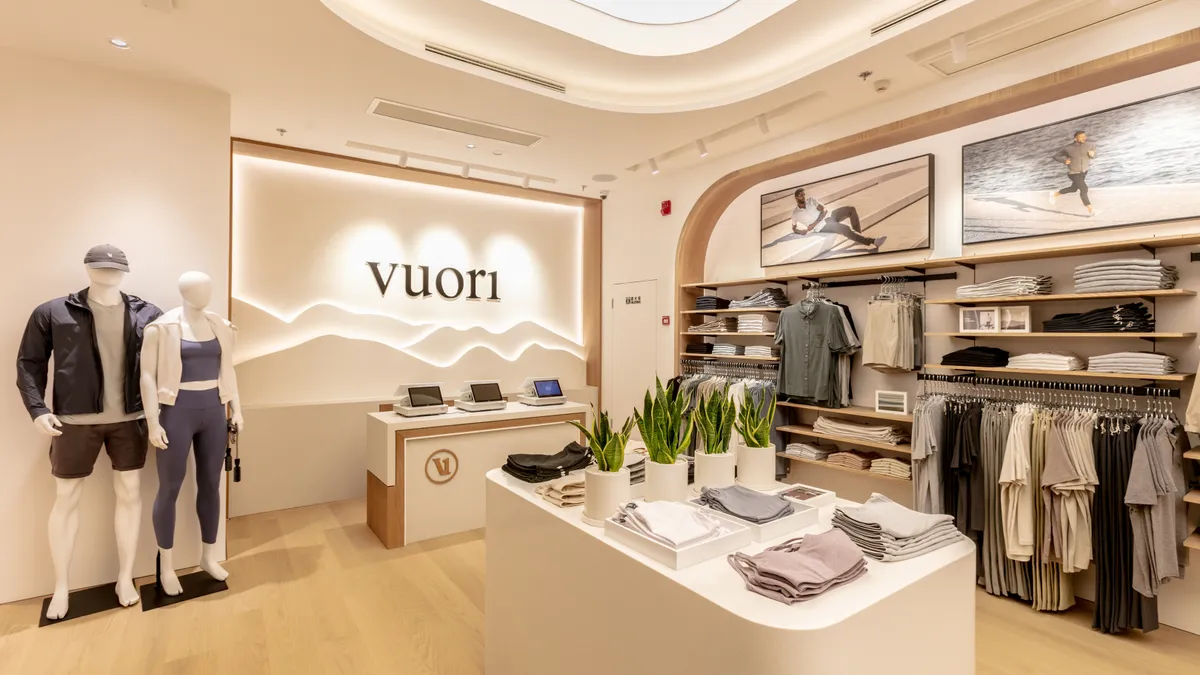Dive Brief:
-
Vuori has announced an $825 million investment led by growth-minded firms General Atlantic and Stripes, elevating its valuation to $5.5 billion.
-
The infusion, structured as a secondary tender offer, comes three years after a $400 million investment led by SoftBank Vision Fund 2.
-
Andrew Ferrer, managing director at General Atlantic, will join the Vuori board of directors as part of the transaction, according to the brand’s press release Friday.
Dive Insight:
Neither Vuori nor Alo Yoga has managed to topple market leader Lululemon from its perch, but both brands are climbing and have taken share. They must contend not just with Lululemon’s primacy, but also each other: More than half of Vuori’s customers also shop at Lululemon, while 12% also shop at Alo Yoga, according to research from Telsey Advisory Group.
“That said, both Alo Yoga and Vuori have appropriately positioned themselves in the market in a way that differentiates them from longstanding, powerhouse brand, Lululemon,” Dana Telsey said in emailed comments.
There may be room for them all, as the space continues to flourish. In the next three years, the U.S. athleisure market is projected to grow at a compound annual growth rate of some 7%, per Friday’s release. In a statement, Ferrer said that “Vuori has significant whitespace to expand globally, supported by long-term tailwinds in athleisure and a large addressable market across women’s and men’s activewear apparel.”
The investment round comes at a “compelling inflection point for the brand,” according to a statement from Chris Carey, a partner at Stripes.
Vuori has worked to differentiate itself through its designs, marketing and distribution. Like Alo Yoga, the brand has been “aggressively investing in marketing,” according to Jefferies analysts led by Randal Konik. And while Lululemon is aimed at community-minded, fitness-focused consumers who prize high-quality performance fabric, both Alo Yoga and Vuori have carved out somewhat different niches, according to Telsey analysts.
“Vuori is known for its comfort, casual, and more laid-back brand aesthetic, resonating with consumers looking for versatile pieces,” Telsey said. “The brand’s core customers like to transition from workout wear to everyday wear. Originally started as a men’s clothing company, the brand is now equally split between women’s and men’s.”
The DTC brand is available in 18 countries through its own stores — plans are to run more than 100 by some time in 2026, with a focus on Europe and Asia — as well as via wholesale.
















